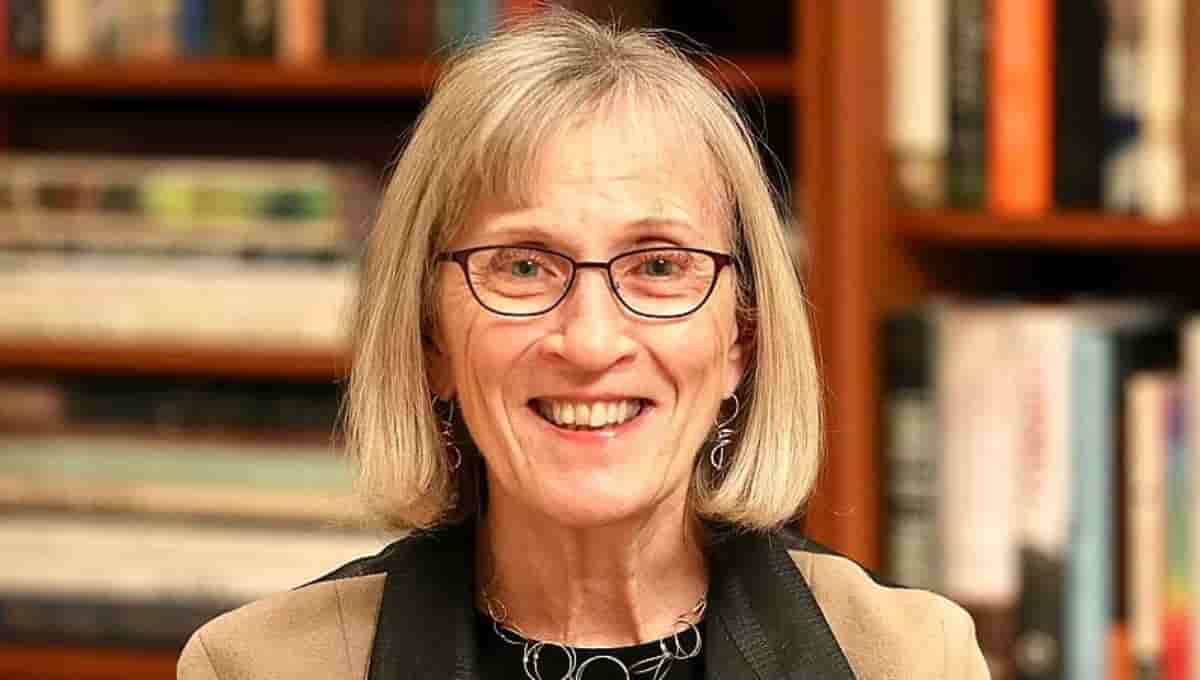Claudia Goldin Scholar, Wikipedia, Wiki, Books, Children, Husband, Biography, Husband
Claudia Goldin Scholar, Wikipedia, Wiki, Books, Children, Husband, Biography, Husband – On a memorable day, Claudia Goldin, a professor at Harvard University, was awarded the Nobel Prize in Economic Sciences for her groundbreaking research on women’s progress in the workforce. This momentous achievement marks the third time a woman has received the prestigious economics Nobel, which was first established in 1969. Notably, Claudia Goldin is the first woman to be honored with this accolade individually, rather than sharing it with others.

Claudia Goldin Wins Nobel Prize in Economics for Her Work on Women in the Workforce
Dr. Goldin’s lifelong dedication to her field has been nothing short of remarkable. In 1989, she made history by becoming the first woman to be offered tenure in Harvard’s economics department. Her work spans a wide range of topics, from unraveling the causes of the gender wage gap to studying the evolution of women’s participation in the job market over the past two centuries and its implications for the future labor force.
The Nobel committee in Stockholm praised Dr. Goldin for her invaluable research on female employment, which has shed light on significant historical trends. Her work revealed that the employment of married women decreased during the 1800s as the economy shifted away from agriculture towards industry. However, in the 1900s, women’s participation in the workforce surged as the service sector expanded. The 1970s, in particular, were a transformative period in the United States when women began marrying later, pursuing higher education, and making substantial progress in the labor market. The availability of birth control pills during that era also played a pivotal role, allowing women more time to explore opportunities outside of the home.
Dr. Goldin’s research has also shown that progress in closing the gender wage gap has been uneven throughout history. In recent years, efforts to close this gap have faced significant obstacles, with women in the United States currently earning just over 80 cents for every dollar earned by men. While in the past, differences in education and occupation could explain gender wage disparities, Dr. Goldin’s work has demonstrated that the majority of earnings differences now exist between men and women in the same jobs, particularly after the birth of a woman’s first child.
Randi Hjalmarsson, a committee member and professor of economics at the University of Gothenburg, emphasized the far-reaching societal implications of Dr. Goldin’s discoveries. Dr. Goldin has shown that the residue of historical norms, societal structures, and family dynamics significantly influences individuals’ behavior and economic outcomes. She underscored that achieving gender equality requires addressing not only gender disparities but also the disparities in the division of labor and responsibilities within couples. Despite monumental progress, important differences persist, often tied to women taking on more domestic responsibilities.
Dr. Goldin holds a doctorate in economics from the University of Chicago and frequently collaborates on research papers with her husband, Lawrence Katz, also a distinguished economist at Harvard University. Interestingly, Dr. Goldin was asleep when she received the call informing her of the Nobel Prize, having initially risen early to tend to her dog before returning to bed. Delighted by the news, she expressed her hope that this award would mark a culmination of years of significant changes towards greater gender diversity in the field of economics.
Claudia Olivetti, a co-author of Dr. Goldin’s and a professor at Dartmouth, highlighted the profound impact of Dr. Goldin’s work on the current research surrounding women and labor markets. Dr. Goldin’s recent work continues to shape the field, with a new working paper addressing the remarkable advancements women made in the 1970s and the challenges that have arisen since then. Beyond her research contributions, Dr. Goldin has played a vital role as a mentor to many women entering the field of economics, generously sharing her experiences and demonstrating the potential for success in a predominantly male-dominated profession.
Leah Boustan, a former student of Dr. Goldin’s who is now a professor at Princeton, acknowledged the profound influence of Dr. Goldin’s work on labor economics. She emphasized that current researchers are still drawing inspiration from Dr. Goldin’s studies, exploring the complex interactions between marriage, contraception, and labor market decisions throughout history. Dr. Goldin’s work has left a multitude of threads for labor economists and economic historians to follow, shaping ongoing inquiries into these critical topics.
While Dr. Goldin’s Nobel Prize is a significant achievement, it is worth noting that other notable individuals and groups were also recognized for their outstanding contributions in various fields. Katalin Kariko and Drew Weissman were awarded the Nobel Prize in Physiology or Medicine for their pioneering work leading to the development of effective COVID-19 vaccines. The Nobel Prize in Physics was shared by Pierre Agostini, Ferenc Krausz, and Anne L’Huillier for their groundbreaking techniques that illuminate the subatomic realm of electrons. The Nobel Prize in Chemistry was presented to Moungi G. Bawendi, Louis E. Brus, and Alexei I. Ekimov for their discovery and development of quantum dots, incredibly small nanoparticles whose properties are determined by their size. In the realm of literature, the Nobel Prize was awarded to Jon Fosse, a Norwegian novelist, poet, and playwright known for his innovative works that give voice to the unsayable. Finally, the Nobel Peace Prize was presented to Narges Mohammadi, Iran’s prominent human rights activist, recognized for her unwavering commitment to fighting oppression against women in Iran and her advocacy for human rights and freedom for all.
Conclusion
In conclusion, Claudia Goldin’s Nobel Prize in Economics is a testament to her pioneering work in understanding and addressing gender disparities in the workforce. Her research has not only shed light on historical trends but also pointed to the importance of addressing societal and family structures to achieve true gender equality. Dr. Goldin’s contributions have left an indelible mark on the field of economics, inspiring current and future researchers to continue exploring these critical issues.
Is Claudia Goldin married?
Yes, Claudia Goldin is married. She has a doctorate in economics from the University of Chicago, and she often collaborates on research papers with her husband, Lawrence Katz, who is also an economist at Harvard University.
Why is Claudia Goldin important?
Claudia Goldin is an important figure because she has won the Nobel Prize in economics for her groundbreaking research on wage inequality between men and women. Her work has helped us understand why there are differences in pay between genders.
Does Claudia Goldin have children?
No, Claudia Goldin does not have children. This fact supports her theory that child-rearing responsibilities might be one reason why some women face challenges in reaching top positions in their careers.
Read More Bio








